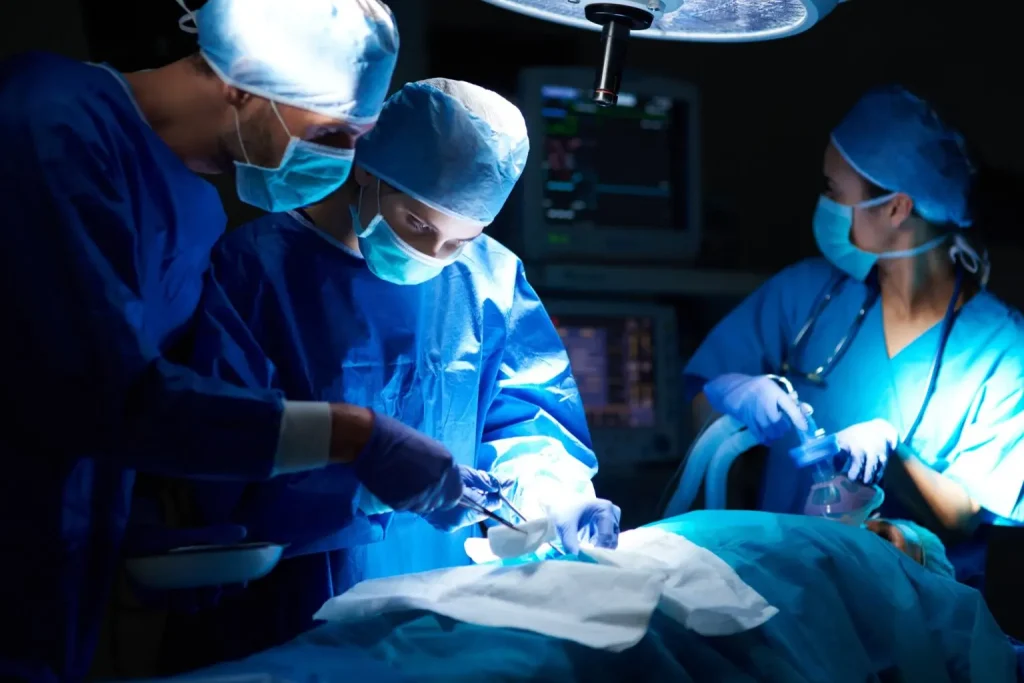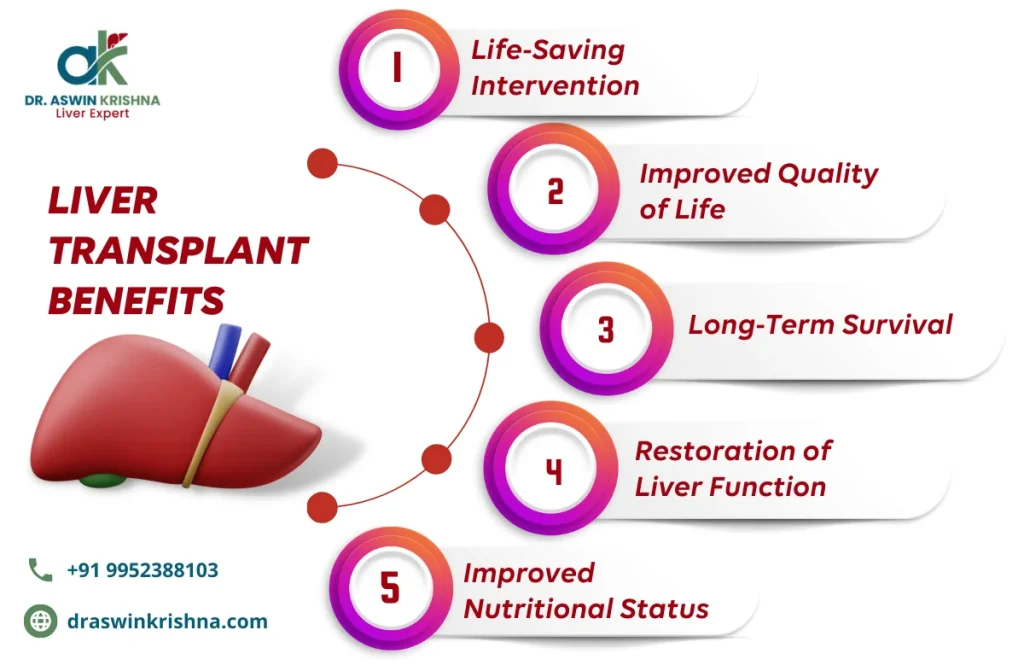
Liver transplantation, an intricate surgical procedure crucial for individuals grappling with end-stage liver diseases like cirrhosis or acute liver failure, involves replacing a diseased liver with a healthy one from a living or deceased donor. In Chennai, renowned for its medical expertise, finding a Liver Transplant in Chennai is pivotal for the success of this life-saving intervention
The main types of liver transplant include:
Deceased Donor Liver Transplantation (DDLT): Involves transplanting a liver from a deceased donor to a recipient.
Living Donor Liver Transplantation (LDLT): Utilizes a segment of the liver from a living donor, typically a family member or close friend, for transplantation.
Split Liver Transplantation: A deceased donor liver is divided into two parts, allowing it to be transplanted into two different recipients.
Auxiliary Liver Transplantation: Involves supplementing a diseased liver with a partial liver transplant, usually from a living donor, to support the recipient’s failing liver function.
Domino Liver Transplantation: A technique where a liver from a patient with a metabolic disorder, such as familial amyloid polyneuropathy, is transplanted into a recipient.
A liver transplant in chennai is necessary when a patient has reached end-stage liver failure, where the liver can no longer function adequately to sustain life. This condition can arise suddenly due to infections, specific medications, or long-term medical issues. Liver failure can occur due to several reasons:

Liver transplant treatment in Chennai, like anywhere else, involves certain risk factors. It’s important to note that advancements in medical technology and surgical techniques have significantly improved outcomes, but there are still potential risks associated with the procedure.
Chennai’s top hospitals provide cutting-edge facilities for liver transplants, ensuring that patients receive the best possible care. Some key features include:
While liver transplants can be life-saving, like any major surgery, they come with potential complications. Understanding these risks can help in early detection and management. Common complications include:
However, with expert care, most of these complications can be effectively managed, and the success rate of liver transplant in Chennai remains high.
The success rate of liver transplant in Chennai is among the best in the country, thanks to several factors:
Post-transplant nutrition plays a vital role in recovery and overall health. After a liver transplant, patients must adhere to specific dietary restrictions to support healing and prevent complications. Here are some foods to avoid:
A liver transplant is a critical yet life-saving procedure for patients with end-stage liver disease or acute liver failure. Chennai is renowned for its world-class medical facilities, offering advanced liver transplant treatment.
Key procedures involved include:
The success rate of liver transplant cost in Chennai is commendable, thanks to the expertise of skilled surgeons and state-of-the-art medical infrastructure.
A liver transplant is a crucial surgical procedure that replaces a diseased liver with a healthy one from a donor. It is often the only viable treatment for patients suffering from severe liver diseases. With advancements in medical technology, liver transplant in Chennai has become a safe and effective procedure, offering patients a second chance at life. Chennai is home to some of the best transplant centers, equipped with cutting-edge technology and highly experienced surgeons, ensuring the highest success rates for patients undergoing this life-saving procedure.
A liver transplant treatment in Chennai is recommended for patients with end-stage liver disease, where the liver is no longer able to function properly. The key indications include:
Chronic Liver Failure: Often caused by long-term liver diseases leading to irreversible damage.
Acute Liver Failure: A sudden loss of liver function, which can be life-threatening.
Liver Cancer: In cases where the cancer is confined to the liver and has not spread to other organs.
Metabolic Disorders: Some inherited liver diseases require transplantation as the only viable cure.
Cirrhosis: A common reason for liver failure, often due to excessive alcohol consumption or chronic hepatitis infections.
There are several underlying conditions that may necessitate a liver transplant in Chennai. Some of the most common causes include:
Hepatitis B and C: Viral infections leading to chronic inflammation and liver damage.
Alcoholic Liver Disease: Excessive alcohol consumption over the years leading to cirrhosis.
Non-Alcoholic Fatty Liver Disease (NAFLD): A growing concern, especially in patients with obesity and diabetes.
Autoimmune Liver Diseases: Conditions where the immune system mistakenly attacks the liver.
Genetic Liver Disorders: Conditions like Wilson’s disease and hemochromatosis, which cause toxic buildup in the liver.
Advanced Medical Facilities: Chennai boasts world-class hospitals specializing in liver transplant treatment in Chennai, equipped with cutting-edge technology.
Highly Skilled Surgeons: The city has some of the most experienced transplant surgeons and hepatologists in India.
Affordable Treatment Options: Compared to other cities, Chennai offers cost-effective treatment without compromising on quality.
Comprehensive Post-Operative Care: Hospitals in Chennai provide extensive rehabilitation and follow-up programs for patients post-transplant.
A liver transplant in Chennai can be a life-changing decision for patients suffering from severe liver conditions. With world-class medical expertise and state-of-the-art healthcare facilities, Chennai remains one of the top destinations for liver transplant procedures. If you or a loved one are in need of expert consultation, reach out to leading transplant centers in Chennai today.
Dr. Aswin S. Krishna is a leading hepatologist and liver transplant surgeon based in Chennai. You can reach him at the following clinics:
Address: 21/22, Greams Lane, Thousand Lights, Chennai, Tamil Nadu 600006
Phone: +91 99523 88103
🌐 Website
Liver transplant in Chennai is a complex yet potentially life-saving procedure for individuals with end-stage liver disease. Liver transplant treatment in Chennai, equipped with advanced technologies and skilled healthcare professionals, strives to ensure the success of liver transplantation procedures.
Read also Liver Specialist in Chennai.
The cost of liver transplant in Chennai ranges from INR 15 to 30 lakhs (approximately USD 18,000 to 36,000), depending on the hospital, surgeon’s expertise, and patient condition. This includes pre-transplant evaluations, surgery, post-operative care, and follow-up. Additional expenses may arise for medications and potential complications.
In Chennai, liver transplants generally have a one-year survival rate of around 85% to 90%, reflecting strong clinical outcomes. This rate may vary depending on the hospital, surgical expertise, and patient condition. Top hospitals in Chennai are equipped with advanced medical infrastructure and led by highly skilled liver specialists and transplant experts. With proper patient selection, timely intervention, and excellent post-operative care, Chennai has become one of India’s top destinations for liver transplants with favorable outcomes and long-term survival rates.
Liver donors can live normal, healthy lives after recovery. The liver regenerates within a few months, and donors typically return to their daily activities within a few weeks. Regular follow-ups and a healthy lifestyle are crucial to ensure long-term well-being, but overall, donors experience minimal long-term health issues.
The optimal age for a liver transplant is typically under 65, although transplants have been successfully performed on older patients based on overall health and suitability. Factors such as the severity of liver disease, other medical conditions, and the patient’s physical condition play a critical role. For those considering a cost of liver transplant in Chennai, consult with specialized transplant centers for personalized evaluation.
The ideal age for liver donation is between 18 and 60 years old. Donors must be in good overall health, with no significant liver or chronic illnesses. For those interested in liver donation in Chennai, it’s crucial to undergo thorough medical evaluations to ensure suitability and safety for both the donor and recipient.
Yes, a wife can donate a portion of her liver to her husband if she meets the medical criteria for living donor transplantation. Compatibility in blood type and overall health is essential. In Chennai, many hospitals specialize in living donor liver transplants, ensuring comprehensive evaluations and procedures to facilitate this life-saving option.
A liver transplant is not 100% successful, but it has a high success rate. The outcomes depend on several factors including the patient’s overall health, the cause of liver failure, the timing of the transplant, and post-operative care. With advanced medical techniques and experienced surgical teams, success rates have significantly improved. However, as with any major surgery, there are potential risks and complications, so ongoing medical follow-up and healthy lifestyle habits are essential for long-term success.
Yes, many patients live 20 years or more after a liver transplant, especially with early diagnosis, timely surgery, and disciplined post-transplant care. Long-term survival depends on factors like the cause of liver disease, age at the time of surgery, and how well the immune system responds to the new liver. Patients must adhere to lifelong immunosuppressive medication, avoid alcohol, maintain a balanced diet, and attend regular medical check-ups to maximize the longevity of the transplanted liver.
Dr. Aswin Krishna is a distinguished Liver Specialist with over a decade of expertise in the field of Hepatology. His extensive surgical practice spans various esteemed medical centers across India.
Copyright © 2025 Dr. Aswin Krishna. All rights reserved.
© Designed and Developed By Cloudstar Digital